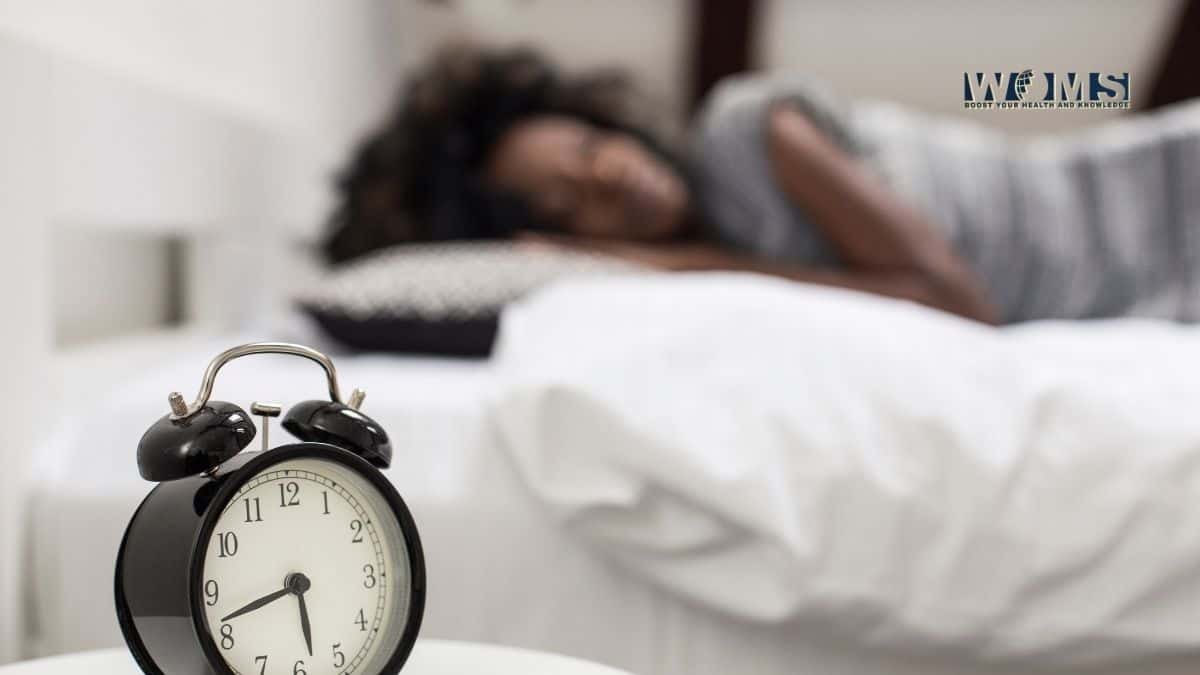Tips for Creating a Sleep Schedule That Works

Over 70 million Americans suffer from chronic sleep problems. Lack of sleep is associated with a long list of physical and mental health conditions from anxiety and depression to obesity, diabetes, and heart disease. Achieving quality sleep is about more than just getting your beauty rest. It’s about promoting healthy energy levels, cognitive function, productivity, and overall health and wellbeing.
One way to improve your sleep quality is to create a consistent sleep schedule. Sleep routines and bedtimes aren’t just for kids. Adults can also benefit from establishing a sleep schedule that works. Keep reading for tips on how it’s done.
Set an Alarm
Step one in creating a consistent sleep schedule is going to bed and waking up at the same time every day. While this may be easy during the work week, it can prove difficult on weekends, holidays, or while on vacation. It’s important, though, to try and stick to your established schedule even on your days off. Choose a time to go to prepare for sleep and go to bed each night. For example, between 9:00 and 10:00 PM. Then, set your alarm in the morning to give yourself at least one hour to wake up and perform your morning activities. If possible, set it for around 6:00 AM. This ensures you get at least 8 hours of sleep, which is the recommended amount for adults.
Over time, your body will start to naturally follow this same sleep schedule and you may not even need to set an alarm. By following a consistent routine, your body’s internal clock (circadian rhythm) will set itself to follow these same patterns. You may even find yourself getting tired around the same time each night and waking up in the morning on your own.
Get Plenty of Physical Activity
One way to guarantee you’re tired enough to sleep at night is to get plenty of physical activity during the day. Exercise promotes both good mental and physical health and melatonin production. Melatonin is a natural hormone that is released at night to promote sleep. Studies show that 30 minutes of aerobic exercise a day can result in better quality sleep that night. Try to hit this goal at least 5 times per week. It’s best to work out in the morning since exercise also causes a spike in adrenaline levels and blood pressure. Exercising too close to bedtime can have an adverse effect and leave you feeling too alert and overstimulated to sleep.
Exercise doesn’t have to be a chore or include a gym membership. Find physical activities and hobbies that you enjoy like hiking, bike riding, gardening, playing sports, or swimming. There are plenty of ways to get outdoors and get active that don’t involve lifting weights or running on a treadmill. Get creative! If possible, exercise around the same time every day to help align your circadian rhythm. For example, start your morning off with a walk or play a round of tennis after work. Just remember to keep an eye on the time so you’re not getting too overstimulated too close to bedtime.
Eat the Right Foods at the Right Times
A well-balanced diet and exercise go hand-in-hand. They also work together to help you establish a sleep schedule that works. It’s not just about the types of foods you eat but also about when you eat them. Eating a heavy meal right before bed is a recipe for disaster (pun intended). Large meals cause spikes in your body’s blood pressure. By triggering the digestive process, your body is now alert as it works to break down the food you just ate. If you have to eat a small snack before bed, make sure it’s light, healthy, and filling. Good examples are a piece of fruit, whole-wheat toast, or a rice cake with peanut butter. These foods are filling, nutritious, and easy to digest.
Large meals before bed also disrupt your sleep schedule by causing gastrointestinal discomfort and frequent sleep disturbances. You may experience heartburn, bloating, gas, and the frequent need to visit the bathroom. This is especially true of high-fat, high-sugar, and processed foods. Promote healthy weight and sleep patterns by limiting your food intake too close to bedtime and making smart food choices.
Avoid Taking Naps
We’ve all been there. You hit that afternoon wall and the thought of taking a short nap is extremely appealing. Unfortunately, taking naps during the day is one sure-fire way to sabotage your sleep and misalign your circadian rhythm. Napping at any time of day can make it more difficult to fall asleep at night but naps later in the afternoon are especially harmful. Long naps are associated with headaches and grogginess, which is often the result of waking up from a deep sleep.
For some people, naps are unavoidable. New parents, shift workers, and those with inconsistent work schedules may be forced to take a nap at some point throughout the day. If this describes you, try to limit your naps to 30 minutes at a time and before 3:00 PM. Doing so gives your body enough time to recover and feel tired enough to fall asleep again at your designated bedtime.
Adopt Relaxation Techniques
Anxiety, stress, and racing thoughts are some of the leading causes of insomnia. It can be very difficult to quiet your mind at night enough to relax and achieve deep sleep. The minute you lay down, thoughts from the day come flooding in. You may experience worry over work obligations the next day, financial stress, or personal issues. At times, it may seem impossible to stop these intrusive thoughts and relax both your body and mind.
This is just one reason including stress-reducing activities in your sleep schedule is so important. Prior to bed, try performing a mindfulness breathing exercise or a short meditation. Both these activities help calm your mind, reduce racing thoughts, and prepare you for sleep. You can also try writing down your thoughts and organizing them for the next day. Creating lists or journaling about what’s bothering you helps your brain organize these thoughts and, in some cases, release them. “To-Do” lists for the next day also help you feel more relaxed and prepared to tackle the morning. Now, you can go to sleep with a clear conscious, and positive attitude two things that will make it easier to fall and stay asleep.
If you’re still struggling to relax before bed, you may want to consider anxiety medication to reduce your stress and promote quality sleep.
Create a Sleep Schedule that Works for Your Unique Lifestyle
No two sleep schedules look the same. Although all humans thrive on routine and consistency, we all have different schedules, jobs, obligations, and interests. Establishing a consistent sleep schedule that not only works but that you can stick to, is about finding what works for your individual needs and lifestyle.
If you struggle with chronic insomnia, this may also involve changing your thoughts about sleep. Cognitive Behavioral Therapy for Insomnia (CBTi) is designed to do exactly this. A form of cognitive therapy, CBT helps you adopt a more positive mind frame and habits surrounding sleep. Finding the right sleep schedule will take time, patience, and trial and error. But once you establish it, you’ll see noticeable differences in your sleep patterns, health, and demeanor almost immediately.




